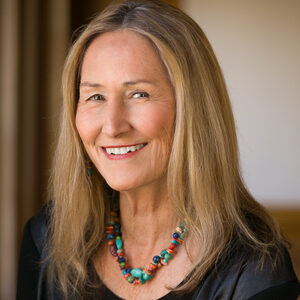Faculty Administrative Leaders
Leaders
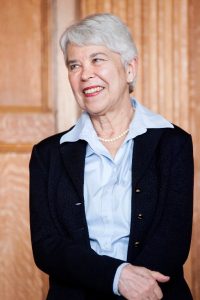
Photo Credit: Hulda Nelson, Berkeley Gallery
|
Chancellor Carol ChristChancellor Carol Christ first came to UC Berkeley in 1970 as a member of the English department faculty. She helped organize the Women’s Studies Program in the 1970s, and she took her first administrative positions outside of English as Faculty Assistant to the Chancellor for the Status of Women and Title IX Compliance Coordinator in the mid-1980s. She was appointed the first woman Chair of the English Department in 1985, serving in that capacity until 1988. She almost immediately went on to become the Dean of Humanities and continued to advance up the administrative ladder. She served as the Dean and Provost of the College of Letters and Science from 1990 to 1994 and then became the Vice Chancellor and Provost of the University. During this time, she was responsible for formulating the University’s response to the prohibition, imposed by Proposition 209, against considering “race, sex, color, ethnicity, or national origin” in admissions or hiring. She was promoted to Executive Vice Chancellor and Provost of the University in 1998, which made her the highest-ranking female administrator who had ever served at Berkeley. As EVCP, she worked to strengthen various departments and launched initiatives in several branches of the sciences. In 2002, she left Berkeley to spend the next eleven years as the 10th president of Smith College. In 2015, Christ returned to UC’s service as the director of the Center for Studies in Higher Education and then as the Interim Vice Chancellor and Provost from 2016-2017. On July 1st, 2017, her decades of service to the University culminated in her appointment as the 11th Chancellor of the University of California, Berkeley. She is the first woman to hold this position. As Chancellor, she has worked to foster a more inclusive campus, advocating for greater racial diversity, women’s issues, and more easily accessible higher education. She has also prioritized budget stability and developing long-term plans for the campus that will protect the quality of Berkeley’s educational riches for future generations. See here for more on Christ in the English Department. Further Sources Consulted“Biography.” Smith College, Smith College. Accessed 27 October 2020. “Carol Christ.” Center for Studies in Higher Education, UC Regents, 2020. “Curriculum Vitae.” Curriculum Vitae | Office of the Chancellor, UC Regents, 2020. Accessed 25 October 2020. |
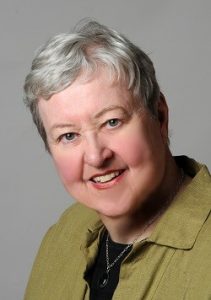 |
Chair Anne MiddletonAnne Middleton arrived at UC Berkeley in 1966 as an assistant professor with a PhD from Harvard. Soon after her arrival, she became active in Berkeley’s Academic Senate, and she continued to devote herself to both departmental and university service throughout her career. In 1988, Middleton was appointed Chair of the English Department, serving in this role until 1992. During her appointment, she helped the Department navigate the closure and seismic refitting of Wheeler Hall. Middleton called on the English Department to maintain a sense of community despite their sudden displacement. A record of her first memo, titled “TO: English Department community in exile”, demonstrates her wit and humor even in a time of uncertainty. Though recruited by other universities, Middleton remained loyal to Berkeley. She retired in 2006, her work on academic committees and departmental leadership earning her the Berkeley Citation. Middleton is remembered for her dedication to public education. A product of public education from her elementary school training through her undergraduate career, she dedicated her time to advocating for excellent public universities. Middleton’s long standing dedication to Berkeley as both a professor and an administrator produced a community that encouraged the intellectual and personal growth of Berkeley’s students. For Middleton’s scholarly work, see here; for her prizewinning teaching, see here. |
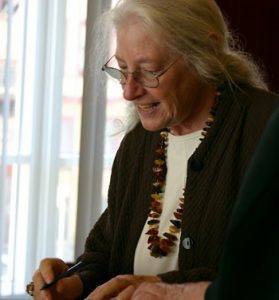
Photo Credit: Durham University
|
Chair Janet AdelmanIn her thirty-nine years on the Berkeley faculty, Janet Adelman served in several administrative posts. In the late nineties, she was an advisor to the Center for Theater Arts, and played a major role in reorganizing the theatre, dance, and performance studies program into a fully-fledged Department of Theater, Dance, and Performance Studies. She laid the groundwork for its redesigned Ph.D. program and served on both its graduate admissions and faculty appointments committees. In 1999, Adelman was appointed Chair of the English Department, serving in that role until 2002. She changed several aspects of the department; most notably, she advocated strongly for the full implementation of parental leave and other family-friendly policies. Upon her retirement in 2007, she was awarded the Berkeley Citation, the campus’s highest honor for service to the University. See here for more on Adelman’s scholarship and here for her prizewinning teaching. |
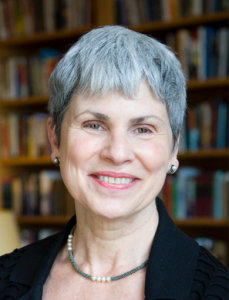 |
Chair Catherine GallagherCatherine Gallagher joined Berkeley’s English department in 1980 as an assistant professor, after receiving her PhD from Berkeley and teaching at Denver University. She was promoted to associate professor in 1985 and to full professor in 1991. She was a founding member of the interdisciplinary journal Representations and co-chaired its editorial board for a decade. Professor Gallagher taught in the English Department for 32 years, retiring in 2012. She served as Chair of the Department from 2003 to 2005 and returned to the position from 2008 to 2009. She was the first Berkeley English Department alumna to become chair, and she undertook several initiatives to open channels of communication with the department’s many thousands of alumni. These included starting a Friends of the English Department group, producing an annual English Department Newsletter, and inviting alumni to give talks to current undergraduates describing their careers. The new connections with alumni later helped launch the Berkeley Connect program. Its prototype was designed and initiated in the English Department in 2009, and it has since grown to encompass seventeen departments on campus. Gallagher was also appointed to serve on the Academic Senate’s Committee on Budget and Interdepartmental Relations, which plays a key role in the university’s academic personnel processes. In the years before her retirement, she helped found the university’s Human Rights Interdisciplinary Minor. Currently, she is co-chair of the 150W History Project, which is documenting the 150-year history of women at Berkeley. This is the first attempt by the university to research, record, analyze, and restore the legacy of the women who contributed to the university we now know. For more Gallagher’s scholarly work see here. Other sources“‘A beginning and not an ending'”: Project chronicles history of women at UC Berkeley.” The Daily Californian, The Daily Californian, 2 April 2020. Accessed 11 November 2020. “UC Berkeley chancellor, faculty members discuss 150W History Project, legacy of women on campus.” The Daily Californian, The Daily Californian, 13 October 2020. Accessed 8 November 2020. |
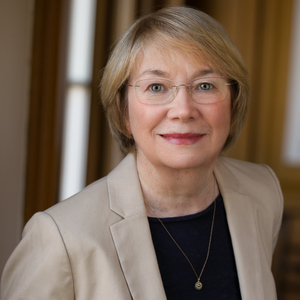
Photo Credit: Yanina Gotsulsky |
Chair Katherine O’Brien O’KeeffeWhen Katherine O’Brien O’Keeffe joined the Berkeley English Department in 2008, she was already one of the world’s foremost scholars of Old English literature. She had begun her career at Texas A&M University and had gone on to the University of Notre Dame. Throughout her academic career, she dedicated her time to the field of Medieval Literature, editing and co-editing numerous works of scholarship. In 2008, she arrived in Berkeley as the Clyde and Evelyn Slusser Professor of English, and she soon became active in the Academic Senate, serving a two-year term on the Divisional Council. In 2012, she published a groundbreaking study of agency in medieval culture, Stealing Obedience: Narratives of Agency and Identity in Later Anglo-Saxon England. In that year she was also appointed Chair of the Berkeley English Department and served in that capacity until 2015. After leading the English Department for three years, she was nominated and chosen to be the Eastman Professor, a visiting professorship at the University of Oxford. She taught her final course at Berkeley in 2017 and now holds Professor Emerita status. In retirement, she is continuing her scholarly work, concentrating now on the decades after the Norman Conquest, and the miracle narratives in England. O’Brien O’Keeffe shaped the environment of every department she joined, and continues to make significant contributions to her academic field. For more on Katherine O’Brien O’Keeffe, see here. Further References“Rhodes Information.” The Association of American Rhodes Scholars: Eastman Professorship. Staff, Oksana Yurovsky |, and Oksana Yurovsky. “Academic Senate to Hold Runoff Election for Divisional Council.” The Daily Californian, 13 Apr. 2012. |
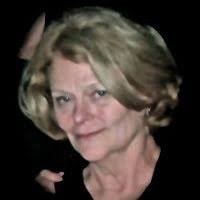
Photo Credit: Berkeley Academia |
Dean Carolyn PorterIn addition to being one of the first women to join the English Department in the early 1970s, Professor Carolyn Porter was also a trusted university administrator. One of just two English Department faculty women to be appointed a dean (Carol Christ was the other), she was named to be both the Dean of Undergraduate Education and the Dean of the Division of Undergraduate and Interdisciplinary Studies in the late 1990s. At a time when interdisciplinary work was expanding among the faculty, Porter created and coordinated programs that allowed students to share in the cross-departmental synergy. Her administrative career began earlier, when she had served as director of UC Berkeley’s Women’s Studies Program from 1983-86, guiding it along a path to departmentalization. She had also co-directed the American Studies Program in the early 1990s. |
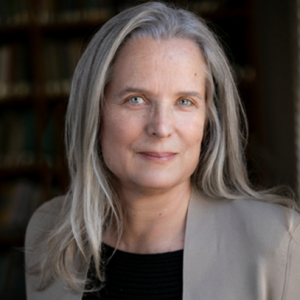
Photo Credit: Yanina Gotsulsky |
Associate Dean Susan SchweikSusan Schweik’s administrative leadership at Berkeley has been both various and consistently effective. As an Associate Professor of English, she was one of the main forces behind the founding and development of Disability Studies at Berkeley, and she has been the co-chair and lead faculty of the Disabilities Studies Program. She helped to create and sponsor the Inclusion Initiative, which places students in jobs as personal care attendants and has significantly increased the number of available local personal care assistants for disabled UC Berkeley students. Professor Schweik has been a steadfast mentor for undergraduate and graduate students with disabilities. She is also co-coordinator, along with Fred Collignon, of the Ed Roberts Postdoctoral Fellowships in Disability Studies program at Berkeley. For her leadership in disability studies, she won the Chancellor’s Award for Advancing Institutional Excellence (2007). As an Associate Dean of Arts and Humanities since 2007, Schweik has worked to insure that academic employees in all ranks and titles have an equal opportunity to advance in their careers. In a recent interview, she explained what drew her to the job. “I was interested in making the review process for all faculty in the division as fair and perceptive, and as un-discouraging, as possible. As a supporter of all the unions on the campus, I was very much drawn to working on the management side and trying to ensure that the represented workers, the UC AFT, and the union contracts were treated with respect. I care about the teaching of writing, so the parts of the job that dealt with Reading and Composition mattered to me. I loved the part of the job that involved learning about my faculty co-workers’ work, especially in departments outside my own—in the language departments, in the arts, in philosophy.” For more on Susan Schweik, see here; for her prizewinning teaching, see here. |
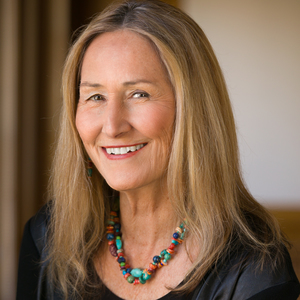
Photo Credit: Yanina Gotsulsky |
Associate Dean Hertha Sweet WongHertha Sweet Wong is Professor of English and Associate Dean of Arts and Humanities. She writes about and teaches autobiography, Native American literatures, ethnic American literatures, and visual studies. Her most recent book is Picturing Identity: Contemporary American Autobiography in Image and Text. It was Wong’s knowledge of the connections between visual and language arts that resulted in her first administrative post outside the English Department. After having become involved in administrative roles in the English Department, she explained in her interview, “I was invited to become the Chair of the Department of Art Practice (they had a history of having outside Chairs) where I served two terms, six years. After that I was invited to serve as Associate Dean of Art and Humanities”. Wong replaced Susan Schweik as the Associate Dean working on academic personnel issues. She describes her role and the satisfactions of administrative leadership in these terms: “I like working with the Dean, Associate Dean, the department Chairs, and the amazingly smart and dedicated staff who make the flow of Berkeley’s elaborate review processes possible. Most of my ‘accomplishment’ have to do with invisible work: problem solving at the departmental level or mediating conflict within a department or between the university and the union. I’m proud of advocating for lecturers to be certain the review process is fair and for working with chairs to create new policies that enhance equity and transparency.” |
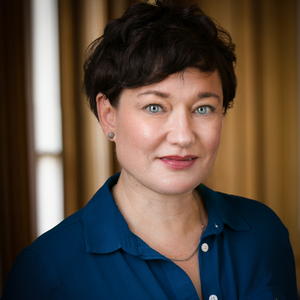
Photo Credit: Yanina Gotsulsky |
Associate Dean Kathleen DoneganProfessor Kathleen Donegan’s work as an Associate Dean of Arts and Humanities has been dedicated to creating innovative courses across the Division. The purpose of her work, she explained in her interview, was to promote more dialogue between departments: The Division of Arts and Humanities is made up of nineteen departments, and while departments can cross-list classes, when I entered the job there was no way to offer inter-disciplinary classes that would appeal to students across the whole division. I developed the course designation HUM (for Arts and Humanities) in order to offer these kinds of classes, and since then have started up many new courses. As examples of such courses—and the ones she’s proudest of—Donegan names the Compass Courses, which are taught by three professors from different departments. The courses begin with meetings of the whole group and then split up into three groups, “each studying with a different professor and learning the tools, texts, and approaches of that professor’s discipline. After four weeks, the groups rotate to study with a new professor and a new discipline, and after another four weeks, rotate again to the final professor and discipline. Then the whole group gathers again at the end to review the territory they’ve covered and survey what they’ve learned.” As a result, the students learn how different disciplines might approach the same issues from different angles. For more on Kathleen Donegan, see here. For more on her prize-winning teaching, see here. |
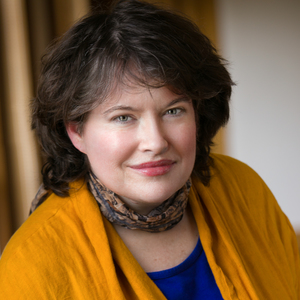
Photo Credit: Yanina Gotsulsky |
Maura Nolan, Director of the Berkeley Connect ProgramMaura Nolan joined Berkeley’s English Department faculty in 2005. Before coming to Berkeley, she had taught at the University of Notre Dame from 1996. Her academic focus is the late medieval period with a concentration on the fourteenth and fifteenth centuries. In 2009, she published John Lydgate and the Making of Public Culture, which presents a new interpretation of Lydgate’s work and his role in shaping literary culture during his time. Nolan was the founding Director of the Berkeley Connect Program and continued to direct it for eight years, guiding its growth and development into a campus-wide effort to mentor undergraduates at the department level. The Program was born from the English Department’s Chernin Mentoring Program, which began in the fall of 2010, under Professor Nolan’s leadership. In 2011, Nolan was awarded the Berkeley Faculty Award for Outstanding Mentorship of Graduate Students for her work on the Chernin Program. In 2014, Nolan led the drive to expand the English Department’s program into the campus-wide Berkeley Connect Program, which extended to numerous departments the means of connecting undergraduate students to graduate and faculty mentors. Currently, sixteen different departments have Berkeley Connect programs, giving undergraduates one-on-one mentoring with graduate students in their fields while also fostering social and intellectual relationships among the students in departmental activities. Nolan stepped down from her role in 2018. In the Berkeley Connect 2017-2018 Progress Report, she addressed her departure, saying “I’m tremendously proud of what we’ve accomplished… I am confident that a bright future lies ahead.” For more on Maura Nolan’s career, see here. Other sourcesBerkeley Connect progress report “Overview.” Berkeley English, University of California, Berkeley English Department. Accessed 15 December 2020. |

